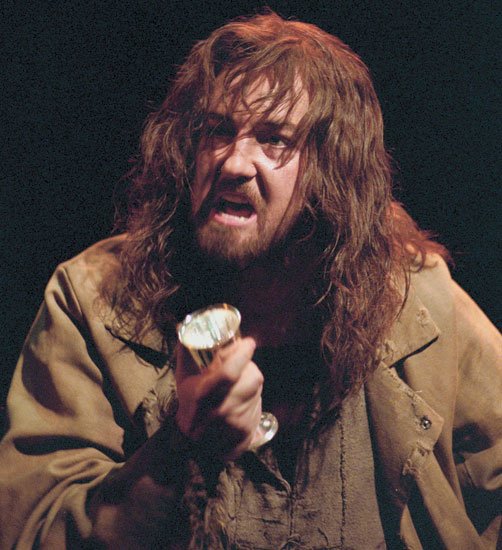
Stealing is not a crime, Italy’s highest court ruled this week — when small amounts of food are taken in desperate need.
The ruling was in the case of a homeless man named Roman Ostriakov, who in 2011 was caught stealing a sausage and some cheese from a Genoa supermarket.
Ostriakov had hidden the goods, worth about $4.50, under his jacket as he paid for breadsticks. He was arrested after a customer informed the store’s security of the theft; and in 2013, he was convicted and sentenced to six months in jail.
This week, however, the Supreme Court of Cassation overturned Ostriakov’s theft conviction, ruling that stealing small amounts of food to stave off hunger is not a crime. The case has drawn comparisons to the story of Jean Valjean, the protagonist of Victor Hugo’s “Les Misérables.”
“The condition of the defendant, and the circumstances in which the seizure of merchandise took place, prove that he took possession of that small amount of food in the face of an immediate and essential need for nourishment, acting therefore in a state of necessity,” said the court, according to CNN.
What do you think? Should stealing only be a crime – sometimes?
The Italian Supreme Court thinks so.
The court is saying that “necessity” — or need — trumps rights. The moment you say that, all rights are out the window. If I can claim that my need overrides your rights, then I can claim a need for just about anything. Isn’t that what politicians do every day when they redistribute other people’s money? This petty thief chose to skip the middleman.
Some people would voluntarily not press charges in such a situation. But that’s not the point. The point is whether it’s legal to steal, at least if your need is considered by some external authority as strong enough.
In America, the government uses need and “necessity” to justify a $20 trillion dollar debt-laden welfare state. The premise of that welfare state is that because some people need, they must get. And the government’s primary job, in a welfare state, is to see to it that those who need do get. $20 trillion is a heck of a lot of starving people in need, through no fault of their own, isn’t it?
So in a way, if you agree with this Italian court’s decision, you’re in good company, and that includes in America. Look at our two presidential candidates. Hillary Clinton wants the welfare state even stronger and bigger. Donald Trump (read his books) does not oppose the welfare state; and, in fact, he supports raising taxes and says he will make sure everyone is taken care of, if he becomes president. “He” can only mean the government; otherwise, Trump would start a charity foundation, not run for president.
The root of this court decision is the much older idea that we are all each others’ keepers. Saying that you are another’s keeper is not merely a way of saying it’s nice to help another, if you can, if you choose, and if the person suffers through no fault of his or her own (an often evaded point). It’s an assertion of the idea that precisely because another needs help (regardless of why), you are – by the very presence of that need – morally and even legally obliged to help.
That’s the principle this court upheld.
If you take this idea all the way, then you get a court decision like this one. You also get a $20 trilion dollar debt-laden, unsustainable welfare state like America has, as well. Or you get a totally bankrupt and ruined welfare state like Italy’s European neighbor, Greece. Property rights no longer exist, not in principle. Once property rights are gone in principle, then any property you are permitted to keep is only because the government says you may. The government becomes your parent, your true sovereign; you are no longer your own.
I use this story not merely as one more piece of evidence that much of the world has gone crazy (although it has); instead, I choose to use it as an opportunity to challenge this ancient idea that we, as individuals, owe our lives to others merely because they claim a need. Is someone else’s need a right to your property, your well-being, or even your very life?
If so, then you should immediately drop everything you’re doing, and live solely and only for the sake of others. Because if you’re prepared to impose this principle on others, by supporting the welfare state and agreeing with decisions such as this Italian court’s, then you must be prepared to walk the talk every hour and day of your life. Rest assured, there are many judges, elected officials and others prepared to hold you to it. Nothing can stop them, other than your own conviction and willingness to say, “My life belongs to me, and nobody else.”
Follow Dr. Hurd on Facebook. Search under “Michael Hurd” (Rehoboth Beach DE). Get up-to-the-minute postings, recommended articles and links, and engage in back-and-forth discussion with Dr. Hurd on topics of interest. Also follow Dr. Hurd on Twitter at @MichaelJHurd1
Dr. Hurd is now a Newsmax Insider! Check out his new column here.
